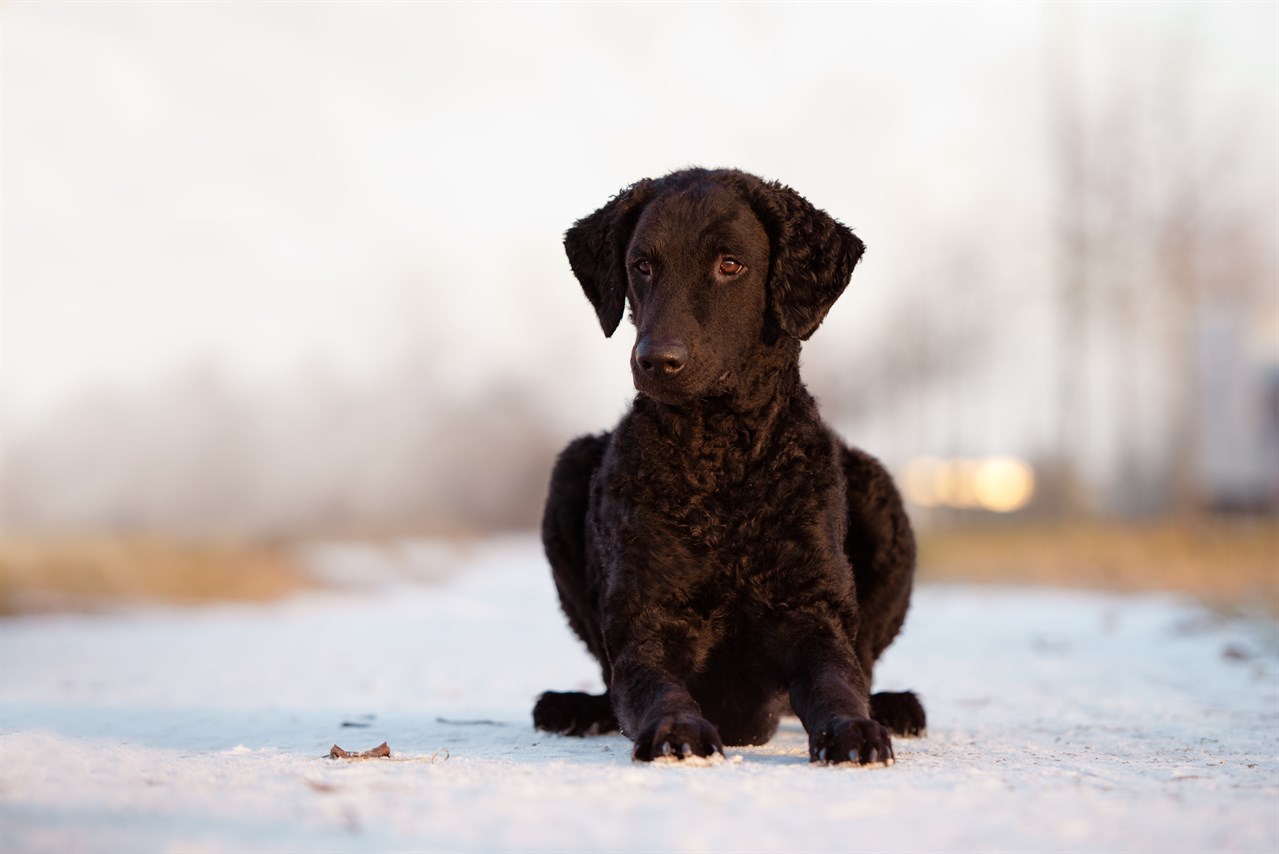Common Health Issues of the Curly Coated Retriever

Curly Coated Retrievers are generally a healthy and hardy breed, but like all dogs, they can be prone to certain health issues. Responsible breeders work to minimise the risk of hereditary diseases through genetic testing and careful breeding practises. While not all Curly Coated Retrievers will experience health problems, it's important for owners to be aware of potential issues and to work closely with veterinarians to maintain their dog's well-being. Common health issues in Curly Coated Retrievers include.
Hip Dysplasia
Hip dysplasia is a genetic condition that affects the hip joints. It can lead to arthritis and lameness. Responsible breeders screen their breeding dogs for hip dysplasia, and prospective puppy buyers should ask for hip clearance information.
Elbow Dysplasia
Similar to hip dysplasia, elbow dysplasia is a hereditary condition that affects the elbows. It can cause pain and lameness in affected dogs. Responsible breeders also screen for elbow dysplasia.
Eye Conditions
Curly Coated Retrievers can be prone to certain eye conditions, including cataracts, progressive retinal atrophy (PRA), and entropion (a condition where the eyelids roll inward). Regular eye exams by a veterinary ophthalmologist can help detect and manage these issues.
Skin Issues
Some Curly Coated Retrievers may experience skin problems, such as allergies or hot spots. Their dense, curly coat can trap moisture, which can lead to skin infections. Regular grooming and maintaining a clean coat can help prevent skin issues.
Bloat (Gastric Torsion)
Bloat is a life-threatening condition that can affect large, deep-chested breeds like Curly Coated Retrievers. It involves the twisting of the stomach, leading to a blockage of blood flow. Symptoms include restlessness, drooling, and a distended abdomen. Immediate veterinary attention is crucial.
Epilepsy
Some Curly Coated Retrievers may be prone to epilepsy, a neurological disorder that causes seizures. It can be managed with medication, but it requires ongoing veterinary care.
Cancer
Cancer is a concern in many dog breeds, including Curly Coated Retrievers. It can manifest in various forms, such as lymphoma or mast cell tumours. Early detection and prompt treatment are essential for managing cancer in dogs.
Addison's Disease
Addison's disease, also known as hypoadrenocorticism, is a hormonal disorder that affects the adrenal glands. It can lead to symptoms like vomiting, diarrhea, and lethargy. It requires lifelong medication.
Hypothyroidism
Hypothyroidism occurs when the thyroid gland doesn't produce enough hormones. Common signs include weight gain, lethargy, and skin issues. Treatment involves medication to replace the missing hormones.
Ear Infections
Due to their floppy ears and water-retrieving history, Curly Coated Retrievers can be prone to ear infections. Regular cleaning and ear care can help prevent this issue.
It's essential for Curly Coated Retriever owners to work closely with a veterinarian who is familiar with the breed's specific health needs. Regular check-ups, preventive care, and responsible breeding practises can help minimise the risk of hereditary diseases and ensure a long and healthy life for your beloved Curly Coated Retriever.
Curly Coated Retriever puppies for sale
- Find Curly Coated Retriever puppies for sale in ACT
- Find Curly Coated Retriever puppies for sale in NSW
- Find Curly Coated Retriever puppies for sale in NT
- Find Curly Coated Retriever puppies for sale in QLD
- Find Curly Coated Retriever puppies for sale in SA
- Find Curly Coated Retriever puppies for sale in TAS
- Find Curly Coated Retriever puppies for sale in VIC
- Find Curly Coated Retriever puppies for sale in WA